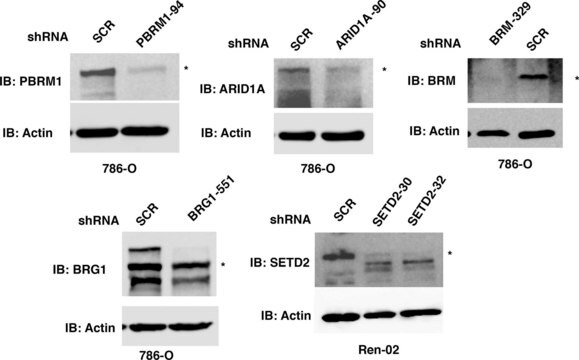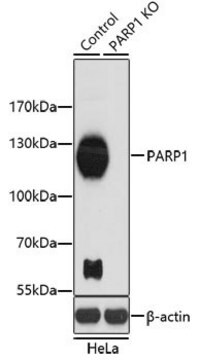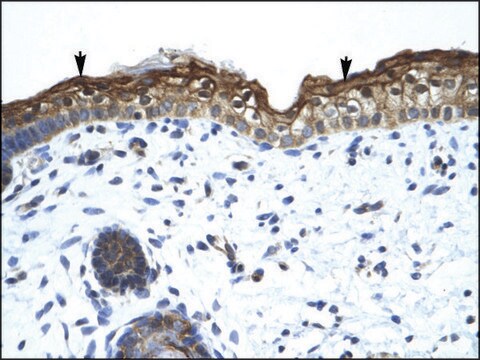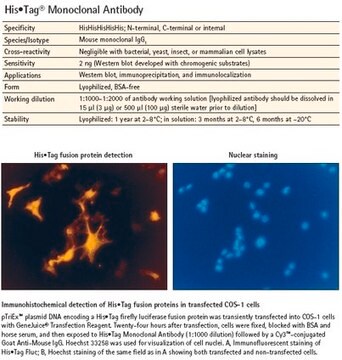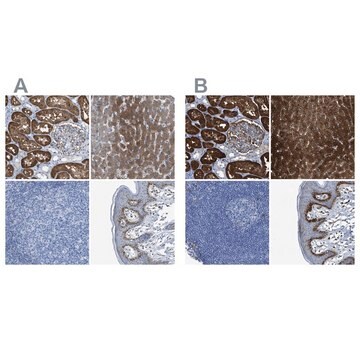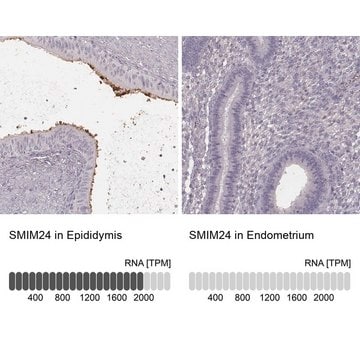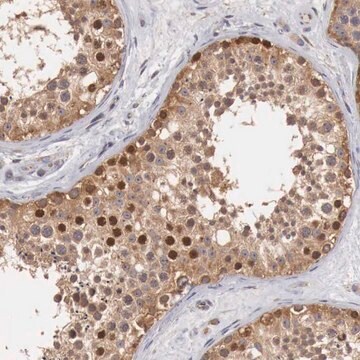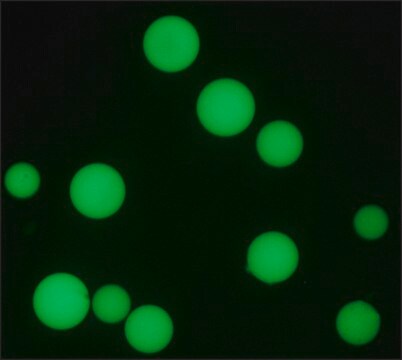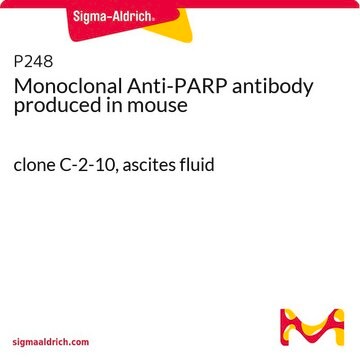ZRB1532
Anti-SMARCA2 Antibody, clone 3E14 ZooMAb® Rabbit Monoclonal

recombinant, expressed in HEK 293 cells
Synonym(s):
Probable global transcription activator SNF2L2;ATP-dependent helicase SMARCA2;BRG1-associated factor 190B;BAF190B;Protein brahma homolog;hBRM;SNF2-alpha;SWI/SNF-related matrix-associated actin-dependent regulator of chromatin subfamily A member 2
About This Item
Recommended Products
biological source
rabbit
Quality Level
recombinant
expressed in HEK 293 cells
conjugate
unconjugated
antibody form
purified antibody
antibody product type
primary antibodies
clone
3E14, recombinant monoclonal
description
recombinant, expressed in HEK 293 cells
product line
ZooMAb® learn more
form
lyophilized
mol wt
calculated mol wt 181.28 kDa
observed mol wt ~180 kDa
purified by
using Protein A
species reactivity
human
packaging
antibody small pack of 25 μL
greener alternative product characteristics
Waste Prevention
Designing Safer Chemicals
Design for Energy Efficiency
Learn more about the Principles of Green Chemistry.
enhanced validation
recombinant expression
Learn more about Antibody Enhanced Validation
sustainability
Greener Alternative Product
technique(s)
affinity binding assay: suitable
immunocytochemistry: suitable
immunohistochemistry: suitable
western blot: suitable
isotype
IgG
epitope sequence
C-terminal
Protein ID accession no.
UniProt accession no.
greener alternative category
shipped in
ambient
storage temp.
2-8°C
target post-translational modification
unmodified
Gene Information
human ... SMARCA2(6595)
General description
Specificity
Immunogen
Application
Evaluated by Western Blotting in MCF-7 cell lysate.
Western Blotting Analysis (WB): A 1:1,000 dilution of this antibody detected SMARCA2 in MCF-7 cell lysate.
Tested applications
Immunohistochemistry (Paraffin) Analysis: A 1:1,000 dilution of this antibody detected SMARCA2 in human testis tissue sections.
Affinity Binding Assay: A representative lot of this antibody bound SMARCA2 peptide with a KD of 1.0 x 10-12 in an affinity binding assay.
Western Blotting Analysis): A 1:1,000 dilution from a representative lot detected SMARCA2 in lysate from THP-1 cells.
Immunocytochemistry Analysis: A 1:100 dilution from a representative lot detected SMARCA2 in U2OS cells.
Note: Actual optimal working dilutions must be determined by end user as specimens, and experimental conditions may vary with the end user
Evaluated by Western Blotting in MCF-7 cell lysate.
Western Blotting Analysis (WB): A 1:1,000 dilution of this antibody detected SMARCA2 in MCF-7 cell lysate.
Target description
Physical form
Reconstitution
Storage and Stability
Legal Information
Disclaimer
Not finding the right product?
Try our Product Selector Tool.
Storage Class Code
11 - Combustible Solids
WGK
WGK 1
Flash Point(F)
Not applicable
Flash Point(C)
Not applicable
Regulatory Listings
Regulatory Listings are mainly provided for chemical products. Only limited information can be provided here for non-chemical products. No entry means none of the components are listed. It is the user’s obligation to ensure the safe and legal use of the product.
JAN Code
ZRB1532-25UL:
ZRB1532-4X25UL:
Certificates of Analysis (COA)
Search for Certificates of Analysis (COA) by entering the products Lot/Batch Number. Lot and Batch Numbers can be found on a product’s label following the words ‘Lot’ or ‘Batch’.
Already Own This Product?
Find documentation for the products that you have recently purchased in the Document Library.
Our team of scientists has experience in all areas of research including Life Science, Material Science, Chemical Synthesis, Chromatography, Analytical and many others.
Contact Technical Service